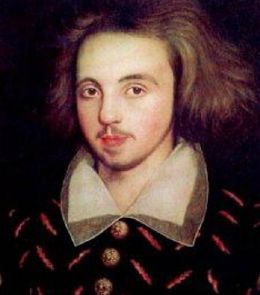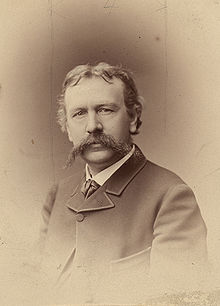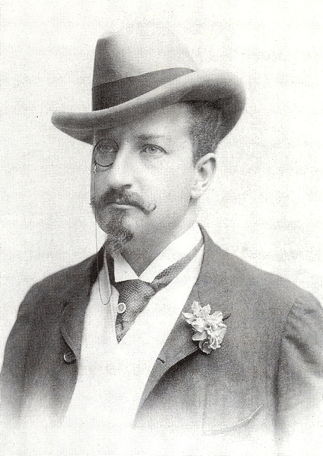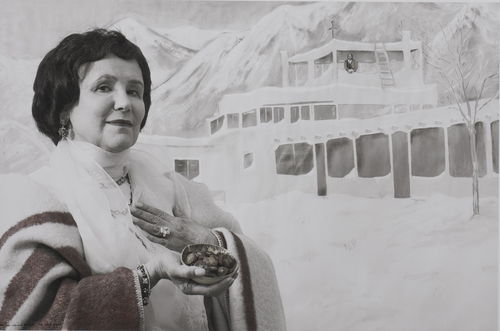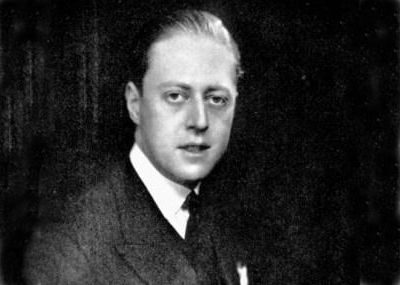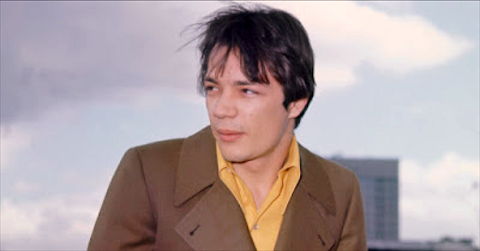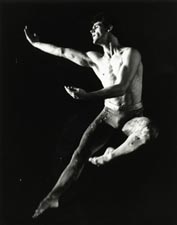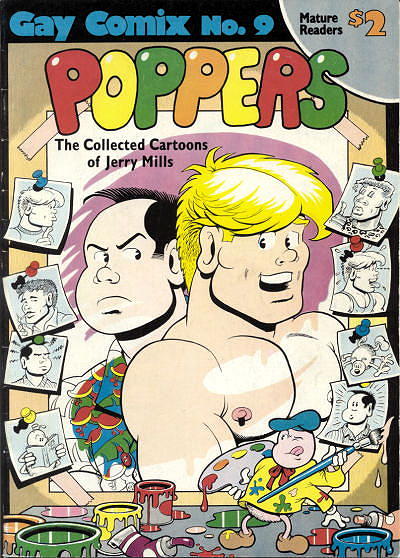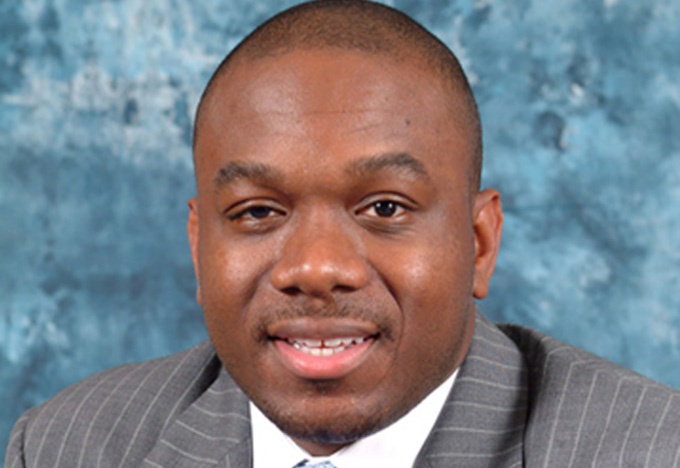|
presents THIS DAY IN GAY HISTORY based on: The White Crane Institute's 'Gay Wisdom', Gay Birthdays, Gay For Today, Famous GLBT, glbt-Gay Encylopedia, Today in Gay History, Wikipedia, and more …
Collected by Ted February 26 [{(o)}]|[{(o)}]|[{(o)}]|[{(o)}]| [{(o)}]|[{(o)}]
1564 – The English dramatist, poet, and translator of the Elizabethan era Christopher Marlowe, was baptised on this date (d.1593). Marlowe was a foremost Elizabethan dramatist , next to William Shakespeare, and is known for his magnificent blank verse, his overreaching protagonists, and his own untimely death. Marlowe is often described today as homosexual. Some believe that the question of whether an Elizabethan was "Gay" or "homosexual" in a modern sense is anachronistic; for the Elizabethans, what is often today termed homosexual or Bisexual was more likely to be recognized as simply a sexual act, rather than an exclusive sexual orientation and identity. There is, perhaps, even some wisdom in this. Two documents suggest that Marlowe was homosexual. The most graphic is the testimony of Richard Baines, an informer who made a long list of allegations against Marlowe after his arrest. Most of these allegations concern Marlowe's atheism, but Baines also claimed that Marlowe said "all they that love not tobacco and boys were fools" and that "St John the Evangelist was bedfellow to Christ and leaned always in his bosom, that he used him as the sinners of Sodom". In 1593, Marlowe's one-time room-mate and fellow dramatist, Thomas Kyd was imprisoned and interrogated after atheistic papers were found in his room. Claiming the papers belonged to Marlowe, Kyd later produced a list detailing some of Marlowe's "monstrous opinions," which included the claim that Marlowe "would report St. John to be our saviour Christ's Alexis ... that is, that Christ did love him with an extraordinary love." In addition, it has been pointed out that there is no evidence of any marriage or female companionship for Marlowe. Some scholars argue that the documentary evidence is inconclusive and that the reports of Marlowe's sexuality may simply be exaggerated rumors produced after his death. David Bevington and Eric Rasmussen describe Baines's evidence as "unreliable testimony" and make the comment: "These and other testimonials need to be discounted for their exaggeration and for their having been produced under legal circumstances we would regard as a witch-hunt." It has also been noted that Kyd's evidence was given after torture, and thus may have little connection to reality. Marlowe's writing is notable for its homosexual themes. Edward II (c.1592) is one of the very few English Renaissance plays to be concerned with homosexuality, since Edward II of England had that reputation. The portrayal of Edward and his love, Piers Gaveston , is unflattering, but so too is the portrayal of the barons who usurp him, and the play's numerous modern revivals have demonstrated that Edward's tragic decline and death can elicit sympathetic responses; it is thus conceivable that some contemporary audience members might have responded similarly. In Dido, Queen of Carthage, he opens with a scene of Jupiter "dandling Ganymede upon his knee" and says "what is't, sweet wag, I should deny thy youth?, whose face reflects such pleasure to mine eyes." Venus complains during the play that Jupiter is playing "with that female wanton boy." In Hero and Leander, Marlowe writes of the male youth Leander, "in his looks were all that men desire" and that when the youth swims to visit Hero at Sestos, the sea god Neptune becomes sexually excited, "imagining that Ganymede, displeas'd... the lusty god embrac'd him, call'd him love... and steal a kiss... upon his breast, his thighs, and every limb", while the boy naive and unaware of Greek love practices said that, "You are deceiv'd, I am no woman, I... Thereat smil'd Neptune." The mere inclusion of same-sex love themes in Marlowe's works has been seen as signifying a biographical interest. Diligent classicists often mimicked the homosexual themes they found in Greek and Roman texts (as Edmund Spenser did in The Shepheard's Calendar), but Marlowe accords these themes more prominence than almost any other writer besides Richard Barnfield. In conjunction with the rumors preserved in the historical record, the prominence of homosexual themes in Marlowe's work has led, especially in the 20th century, to a presumption of interest in same-sex love (although not necessarily of homosexual activity).
1836 – Elihu Vedder, the American symbolist painter, book illustrator, and poet, was born on this date (d.1923). He is best known for his fifty-five erotic illustrations for Edward FitzGerald's translation of The Rubaiyat of Omar Khayyam. Born in New York City, he studied under the genre and historical painter Tompkins Harrison Matteson, at Sherburne, N.Y., later under François-Edouard Picot, in Paris. After eight months in the studio of Picot, he settled in Florence until the end of 1860. There he learnt drawing from Raffaello Bonaiuti, became interested in the Florentine Renaissance. After 1867 he lived in Rome, making occasional visits to America. For the rest of his life he travelled frequently in Europe and back to America. Vedder worked on line illustrations from the 1860s, when he found difficulty supporting himself in New York as a painter of then-unfashionable topics. He continued with illustrative work even after he established himself, including pictures to accompany his own poetry, and most well-known, 56 illustrations for a version of The Rubaiyat of Omar Khayyam (published 1884).  Vedder's Adam with a decidedly masculine Eve (Click for larger) He sought out and became friends with Walt Whitman, Herman Melville, and Simeon Solomon. Apart from his home in Rome - after the financial success of his 1884 Rubaiyat work - he had another on the Isle of Capri, then a haven for male "aesthetes," a polite word at the time for homosexuals.
1861 – Ferdinand I (d.1948), born Ferdinand Maximilian Karl Leopold Maria of Saxe-Coburg and Gotha, was the ruler of Bulgaria from 1887 to 1918, first as knyaz (prince regnant, 1887–1908) and later as tsar (1908–1918). He was also an author, botanist, entomologist and philatelist. The first Knyaz (Prince Regnant) of the Third Bulgarian State, Alexander of Battenberg, abdicated in 1886, only seven years after he was elected. Ferdinand, who was an officer in the Austro-Hungarian army was elected Knyaz of autonomous Bulgaria by its Grand National Assembly on 7 July 1887 in the Gregorian calendar (the "New Style" used hereinafter). In desperate attempts to prevent Russian occupation of Bulgaria, the throne had been previously offered, before Ferdinand's acceptance, to princes from Denmark to the Caucasus and even to the King of Romania. His accession was greeted with disbelief in many of the royal houses of Europe. Queen Victoria, his father's first cousin, stated to her Prime Minister, "He is totally unfit ... delicate, eccentric and effeminate ... Should be stopped at once." To the amazement of his initial detractors, Ferdinand generally made a success during the first two decades of his reign On 11 October 1915, the Bulgarian army attacked Serbia after signing a treaty with Austria-Hungary and Germany stating that Bulgaria would gain the territory it sought at the expense of Serbia; even though Ferdinand was not an admirer of German Emperor Wilhelm II (his second cousin once removed) or Austrian Emperor Franz Josef I whom he described as "that idiot, that old dotard of a Francis Joseph". As WWI drew to a close, Tsar Ferdinand abdicated to save the Bulgarian throne in favour of his eldest son who became Tsar Boris III on 3 October 1918. Under new leadership, Bulgaria surrendered to the Allies and as a consequence, lost not only the additional territory it had fought for in the major conflict, but also the territory it had won after the Balkan Wars. Ferdinand entered a marriage of convenience with Princess Marie Louise of Bourbon-Parma, daughter of Robert I, Duke of Parma and Princess Maria Pia of Bourbon-Two Sicilies, on 20 April 1893 at the Villa Pianore in Lucca. The marriage produced four children. Marie Louise died on 31 January 1899 after giving birth to her youngest daughter. Ferdinand did not think again about marriage until his mother, Princess Clémentine died in 1907. To satisfy dynastic obligations and to provide his children with a mother figure, Ferdinand married Eleonore Reuss of Köstritz, on 28 February 1908. Neither romantic love or physical attraction played any role, and Ferdinand treated her as no more than a member of the household, and showed scant regard. In his private relations, Ferdinand was a somewhat hedonistic individual. He was thought to be bisexual throughout his life, but up to middle age, his inclination was more towards women, and he enjoyed affairs with a number of women of humble position, siring a number of illegitimate children whom he then supported financially. But rumours abounded of homosexual trysts with blue-eyed lieutenants and valets. Ferdinand's bisexuality was both well-known and exploited throughout European diplomatic circles. It became the custom for visiting dignataries seeking favour from Ferdinand to be accompanied by a handsome young equerry. Ferdinand's regular holidays on Capri, then a famous haunt for wealthy gay men, were common knowledge in royal courts throughout Europe. In 1895, an interview given by the embittered former Prime Minister, Stefan Stambolov to the Frankfurter Zeitung created a nine day scandal across Europe, when he focused strongly on his personal witness of Ferdinand’s alleged homosexual interests.
1879 – A true female aesthete, Mabel Dodge Luhan, an American patron of the arts, was born (d.1962); Dodge Luhan is particularly associated with the colony of artists who settled in Taos, New Mexico. Mabel Ganson Evans Dodge Sterne Luhan, to give her all her names, was married four times (the last time to an American Indian), had countless lovers, was enormously rich, and virtually originated the idea of "radical chic" by inviting to her salons in New Mexico, New York, and Italy the sort of people usually excluded from the guest lists of the rich — labor leaders, homosexuals, revolutionary artists, Bolsheviks, outré types like John Reed, Margaret Sanger, and D.H. Lawrence. She was actively bisexual during her early life and frankly details her passionate physical encounters with young women in her autobiography, Intimate Memories, published in 1933. In every way she was fifty years ahead of her time. Mabel Dodge Luhan died at her home in Taos in 1962 and was buried in Kit Carson Cemetery. The Mabel Dodge Luhan House has been designated a national historic landmark and is a historic inn and conference center. Natalie Goldberg frequently teaches at Mabel Dodge Luhan House, where Dennis Hopper wrote Easy Rider .
1897 – An all-male house of prostitution is raided in Eureka, Utah. The owner and three prostitutes are arrested.
1905 – Robert Byron (d.1941) was a British travel writer, best known for his travelogue The Road to Oxiana. He was also a noted writer, art critic and historian. He was the son of Eric Byron, a civil engineer, and his wife Margaret Robinson, born in Wembley, London, on 26 February 1905, the only son among three children. He was educated at Eton College and Merton College, Oxford, where he graduated in 1925 in Modern History. At Oxford he took part in the Hypocrites' Club. Byron travelled in 1925 across Europe in a car to Greece, with Alfred Duggan and Gavin Henderson. It led to his first book, and a second was commissioned, to be on Mount Athos. He later visited India, the Soviet Union, and Tibet. It was in Persia and Afghanistan that Byron found the subject to match his style of travel writing. He completed his account of The Road to Oxiana in Beijing, his temporary home. His innovation, that set him apart from his major travel writing rival Peter Fleming and others, was to disregard the conventional continuous narrative. An appreciation of architecture is a strong element in Byron's writings. He was a forceful advocate for the preservation of historic buildings and a founder member of the Georgian Group. A philhellene, he also pioneered, in the English speaking world, a renewal of interest in Byzantine history. Byron has been described as "one of the first and most brilliant of twentieth-century philhellenes". He attended the last Nuremberg Rally, in 1938, with Nazi sympathiser Unity Mitford. Byron knew her through his friendship with her sister Nancy Mitford, but he was an outspoken opponent of the Nazis. Nancy Mitford hoped at one stage that Byron would propose marriage to her, and was later astonished as well as shocked to discover his homosexual tastes, complaining: "This wretched pederasty falsifies all feelings and yet one is supposed to revere it." According to Paul Fussell in his introduction to the Oxford paperback edition of The Road to Oxiana (1982) Byron was a fervent and vocal critic of Hitler, "object[ing] in the most violent terms to the Nazification of Europe and abusing those in England who imagined that some sort of compromise with this new wickedness was possible". 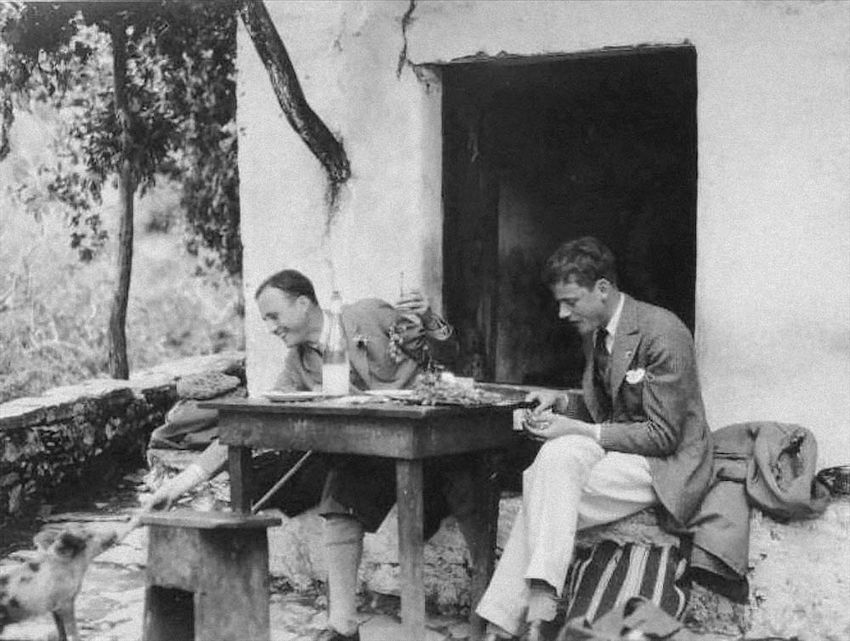 Byron and Parsons in China (Click for larger) Byron's great, though unreciprocated, passion was for Desmond Parsons, younger brother of the 6th Earl of Rosse, who was regarded as one of the most charismatic men of his generation. They lived together in Peking, in 1935, where Parsons developed Hodgkin's disease, of which he died in Zurich, in 1937, when only 26 years old. Byron was left devastated. Byron died aged 35 in 1941, during World War II, when the ship on which he was travelling was torpedoed en route to West Africa. Byron was destined for Egypt and would likely have transshipped on arrival and continued his journey via the Cape. The SS Jonathan Holt was attacked by an U-97, a Type VIIC submarine, in the North Atlantic off Cape Wrath. His body was never found.
1915 – Nevada enacts a broadly worded vagrancy law that prohibits only males from being out late at night for purposes of lewd or dissolute conduct.
1943 – Oklahoma outlaws solicitation for a sexual act.
1945 – William S. Levise, Jr, known better by his stage name Mitch Ryder, is an American musician who has recorded more than two dozen albums during more than four decades. In 1978 Ryder came out and released the overtly gay solo album How I Spent My Vacation. Ryder is noted for his gruff, wailing singing style and his dynamic stage performances. He was influenced by his father, a musician. As a teenager, Ryder sang backup with a Black soul-music group known as the Peps, but racial animosities interfered with his continued presence in the group. Ryder formed his first band (Tempest) when he was in high school, and the group gained some notoriety playing at a Detroit soul music club called The Village. Ryder next appeared fronting a band named Billy Lee & The Rivieras, which had limited success until they met the songwriter / record producer, Bob Crewe. Crewe renamed the group Mitch Ryder & The Detroit Wheels, and they recorded several hit records for his DynoVoice Records and New Voice labels in the mid to late 1960s, most notably "Devil with a Blue Dress On", their highest-charting single at #4, as well as "Sock It to Me-Baby!", a #6 hit in 1967, and "Jenny Take a Ride!", which reached #10 in 1965. During 1968, Trumpeters Mike Thuroff and John Stefan were hired to tour with his horn section and band. Mike Thuroff and John Stefan also recorded the trumpet parts of Mitch's song, "Ring My Bell." This song was not permitted to be played by radio in many states due to its sexual innuendos. Ryder withdrew from music after experiencing throat trouble, moving to Colorado with his wife and taking up writing and painting. In 1983 Ryder returned to music. Ryder continues to record and tour, and he has influenced the music of such blue collar rock music artists as Bob Seger, John Mellencamp, Bruce Springsteen and Ted Nugent. Winona Ryder adopted "Ryder" as a stage name after seeing a Mitch Ryder album in her father's collection. On February 14, 2012 Ryder released "The Promise", his first US release in almost 30 years. Ryder currently resides in South Lyon, Michigan, a western suburb of Detroit, Michigan. He continues to tour and perform in the United States and Europe.
He was born in Montreal, Quebec, the son of the late Gene Gillis, a US Olympic skier, and Rhona Wurtele, a Canadian Olympic skier who competed in the 1948 Winter Olympics along with her twin sister Rhoda. His sister, Margie Gillis, is also a dancer and choreographer; they were dance partners from childhood and collaborated on numerous shows. His brother, Jere Gillis, played professional hockey from 1977 to 1987 for the Vancouver Canucks, New York Rangers, Quebec Nordiques, Buffalo Sabres, and the Philadelphia Flyers. He joined the Paul Taylor Dance Company in 1976 in New York City. He lived and worked in New York for the next seventeen years. His major roles with Taylor included the detective in Le Sacre du Printemps (The Rehearsal), as well as leads in Profiles, Arden Court, and Speaking Tongues. He also danced with the O'Donnell and José Limón companies while making frequent appearances with his sister Margie Gillis, for whom he also choreographed. Having been one of the Paul Taylor Dance Company's leading dancers and showing every sign of becoming a great choreographer - he choreographed more than twenty works - he was designated Taylor's heir-apparent. Unfortunately, this was not to be as he died from AIDS complications at the age of 42 in 1993.
1951 – Jerry Mills (d.1993) was a gay cartoonist, noted particularly for his creation of the "Poppers" comic strip. The strip told of the adventures of Billy, a West Hollywood muscleboy, and his sidekick Yves (based on Mills), a big-hearted nebbish who offered good advice and caution (usually unheeded) for his glamorous friend. Yves always went along for the ride with Billy, commenting on the action, a function he took over from a witty crab louse that lived on Billy's pubic hair, when it was phased out after the first few strips. In the early 1980s Mills worked in the subscriptions department of In Touch for Men, an adult magazine targeted at the gay male community. John Calendo, editor at the time, encouraged Mills to write a regular comic strip, to add variety to the magazine's content. The result, "Poppers", began in April 1982. (The title referred to "poppers", alkyl nitrites which were commonly used in the gay community.) By the mid-80s the strip was also being published ( in translation ) in Gai Pied Hebdo, a French-language gay magazine, and in the Japanese magazine Barazoko. Reprints of the strip also appeared sporadically in Gay Comix under the editorship of Howard Cruse, Robert Triptow, and Andy Mangels. When Mills moved to the classifieds department of Advocate Men, the "Poppers" strip followed him, and was published sporadically. By the beginning of the 1990s Mills' health was deteriorating, as he developed complications associated with HIV infection, and in his final few years he worked less and less. He did, however, attend ACT UP demonstrations in Los Angeles and design posters for the off-shoot organization Queer Nation, concerned with gay visibility. Mills died of his illness in January 1993, survived by his partner Sal Lucarello. As well as writing "Poppers", Mills also created ad hoc cartoons, and wrote an eight page history of gays in comics for the first Meatmen anthology. His predominant contribution to gay cartooning, however, was the "Poppers" strip, which was notable at the time for being one of the first cartoon strips to develop gay characters at home both with their sexuality and their humanity. Where earlier comics had tended to the stereotypical - either the nelly queen or the muscleman - Mills was one of the first to present his characters with lives beyond the stereotypes. Though overshadowed by contemporaries, most notably Tim Barela and Howard Cruse, both of whom also worked with continuing characters in comic strip format, Mills made a substantial contribution to gay cartooning. In particular, the "Chelsea Boys" strip by Glen Hanson and Allan Neuwirth is influenced by Mills.
1955 – Wyoming raises the maximum penalty for sodomy from 5 years to 10 years.
1961 – John McDaniel, born in St. Louis, Missouri, is an American theatre producer, composer, conductor, and pianist. He is known as the lead composer and producer of the 1996 television talk show The Rosie O'Donnell Show, for which he received six Daytime Emmy Award nominations, winning two. McDaniel is also known for his collaborations with Patti LuPone, most notably her 1995 concert Patti LuPone: Live!, which debuted on Broadway after a Los Angeles engagement. He won a Grammy Award for producing the cast album of Annie Get Your Gun (1999), as well as a Tony Award for producing the Broadway production of the latter. McDaniel, who is openly gay, currently resides in New York City with his dog: Beauregard.
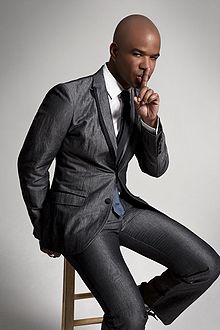
1969 – Chris Willis is an American singer-songwriter and producer. Although initially a gospel singer, he later received international attention for his collaborations with house music artist David Guetta, including the songs "Just a Little More Love", "Love Don't Let Me Go, "Love Is Gone", "Tomorrow Can Wait", "Everytime We Touch" (with Steve Angello and Sebastian Ingrosso) and "Gettin' Over You." Originally a gospel singer, he was featured on the pop-classical album Handel's Messiah – A Soulful Celebration in 1993, singing a contemporary version of "Every Valley Shall Be Exalted". His first job after college in Alabama was touring with a group that sang hundreds of shows in churches over a two-year period. In the mid-1990s, he toured as backup vocalist for Twila Paris. In 1996, he released his debut self-titled album, for which he wrote or co-wrote eight of the eleven songs, and earned a nomination for Best R&B Album at the 1996 Nashville Music Awards. That year, he opened on tour for Mark Lowry, and was one of several featured singers in the musical showcase Emmanuel, a national tour put together by Nashville producer Norman Miller. The tour spawned an album, which won a GMA Dove Award in 1998 for Special Event Album of the Year. He did mostly gospel until 1998 when he signed with a small music label. The label was bought out by a large corporation and Willis took that as a cue to move on. During this time he also worked to resolve the "angst" from being closeted about his sexuality, "I always felt like God really understood – but that wasn't the message I was receiving in the church. So, when I moved out on my own I really internalized that message that God makes us who we are and that it's up to us to embrace that or not. I chose to embrace all those things as freedom, and that freedom begat the freedom I experience now." He cites his being gay as important to his transitioning out of gospel music,"I think there's this unspoken denial that you go through in gospel – maybe so in other musical art forms too – but I just felt for me it just wasn't easy to keep perpetuating that." Willis is now openly gay and resides in Atlanta, GA. He now sees both his color and sexuality as assets rather than liabilities. However, on June 2, 2014 Willis married his best friend of 25 years Jacqueline Leiske.
1977 – Greg Rikaart is an American actor, best known for being on the cast of the soap opera The Young and the Restless, playing Kevin Fisher since July 2003. In May 2017, Rikaart confirmed earlier reports that he would be exiting the soap with his last film date to be the following month. However, on August 3, the official twitter account for The Young and the Restless confirmed Rikaart was back filming. In September, Entertainment Weekly reported that Rikaart was back for a 2-week stint. Rikaart was born in Brooklyn, New York and grew up on Staten Island, New York. He graduated with honors from Villanova University in Pennsylvania. While in college, he spent a semester in Washington, D.C., as an intern for a congressman on Capitol Hill. In June 2013, Rikaart revealed that he is in a committed relationship with writer Robert Sudduth. Rikaart posted a photograph of himself on Twitter with his boyfriend, with the caption "Not getting married anytime soon, but celebrating #equality tonight nonetheless", in response to the 2013 United States Supreme Court decisions in favor of same-sex marriage equality. On May 9, 2015, Rikaart and Sudduth married in Maui. Their first child, a son, was born June 12, 2016, via surrogacy.
1991 – Tim Berners-Lee introduces WorldWideWeb, the first web browser.
2009 – On this date Washington DC's Historic Preservation Review Board voted unanimously to designate the home of veteran Gay rights leader Franklin Kameny as an historic landmark — the first time a Gay-related site had been approved for landmark status in the nation's capital.
2013 – Marco McMillian was the first openly gay political candidate in Mississippi. He was murdered on this date by Lawrence Reed, possibly after McMillian showed sexual interest in him.
[{(o)}]|[{(o)}]|[{(o)}]|[{(o)}]| [{(o)}]|[{(o)}] |
